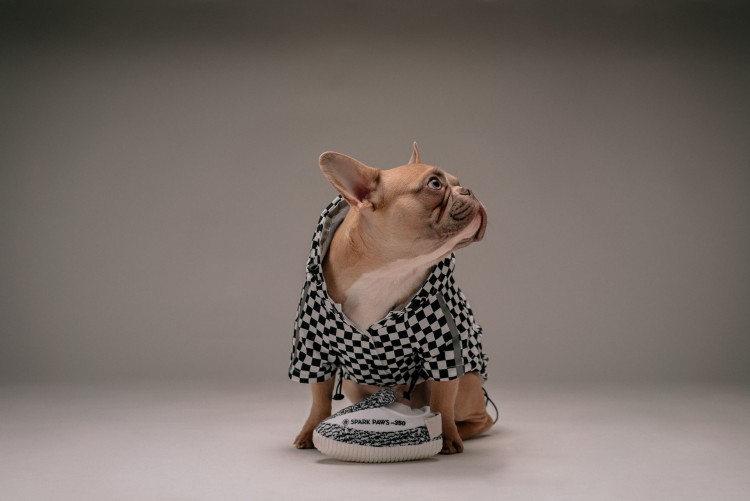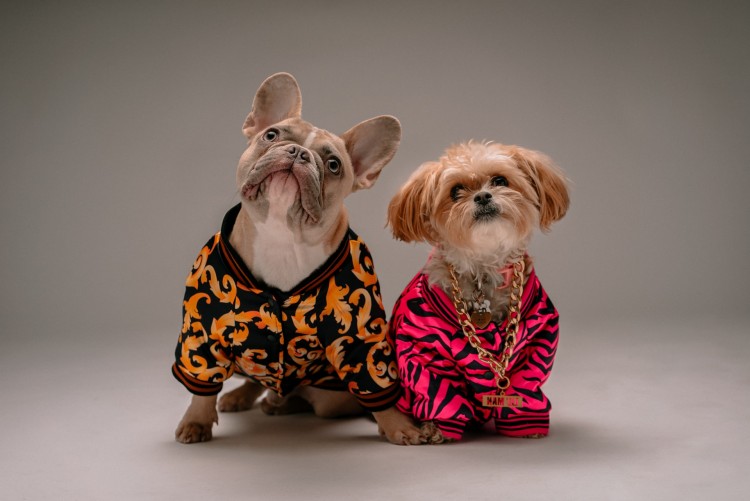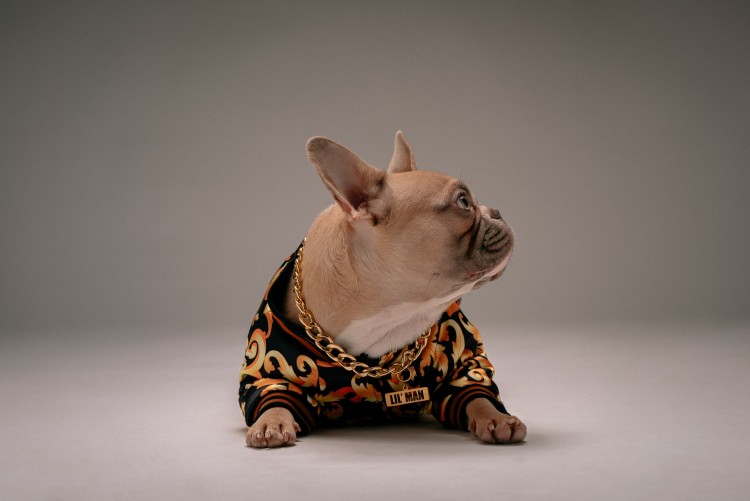
Toy Bulldog
USD 800-1200 Price Avg.
Extinct
Group
Cross Breed
Breed Type
Small
Size
9-12 years
Lifespan
Breed Information
| Group | Extinct |
|---|---|
| Popularity/Rank | 445 |
| Origin | England |
| Other Names | Bull-Pug, English Toy Bulldog, Mini-Bulldog |
| Breed Type | Cross Breed |
| Price (Avg.) | USD 800-1200 |
| Size | Small |
| Weight |
Male: 11.4–18.18 kg,
Female: 11.4–17.3 kg |
| Height |
Male: 27–35 cm,
Female: 25–33 cm |
| Lifespan | 9-12 years |
| Recognized by |
Not recognized by the American Kennel Club. And Not recognized by FCI. |
| Purpose | Companionship |
| Date of Origin | 18th century |
| Ancestry | English Bulldog |
Appearance & Maintenance
| Coat | Smooth |
|---|---|
| Coat Colors | Brindle, Fawn, Piebald, Red, White |
| Grooming Level | |
| Shedding Level | |
| Eye Color Possibilities | Hazel, Amber, Brown, Blue, Green, Grey, Black |
| Nose Color Possibilities | Black, Brown, Pink, Red, Blue, Tan, Fawn, White |
| Coat Color Possibilities | Fawn, Brindle, White, Red, Blue, Black, Tan, Silver, Cream |
| Coat Length | 8 inches |
| Coat Density | Medium |
| Coat Texture | Smooth and silky. |
| Recommended Brushes | Slicker brush, Pin brush, Undercoat rake, Nail clippers, Shedding blade, Grooming mitt, Toothbrush. |
| Brushing Frequency | 2-3 times per week |
Breed Characteristics
| Temperament | Active, Delicate, Entertaining, Friendly, Gentle, Loving, Loyal, Playful, Social, Sportive |
|---|---|
| Intelligent | |
| Trainability | |
| Playfulness | |
| Sensitivity Level | |
| Affection Level | |
| Social Interaction Required | |
| Barking | |
| Watchdog Ability | |
| Territorial | |
| Biting Force | Low |
| Mouthiness | |
| Impulse to Wander or Roam | |
| Prey Drive | |
| Adaptability | |
| Tolerates Being Left Alone | |
| Fighting Dog | Not really |
Good & Friendly with
| Apartment Life Friendly | |
|---|---|
| Stranger Friendly | |
| Kid-Friendly | |
| Cat Friendly | |
| Dog Friendly | |
| Office Friendly | No |
| Senior Citizens Friendly | |
| Pet Friendly | |
| Friendly with First Time Owners | No |
| Service Dog | Not really |
| Therapy Dog | Not really |
| Detection, Sniffer or Security Dog | Not really |
| Search and Rescue Dog (SAR) | Not really |
| Boat Dog | Not really |
| Cart Pulling or Drafting Dog | Not really |
Health Elements
| Health Issues | |
|---|---|
| Hypoallergenic | No |
| Energy Level | |
| Exercise Required | |
| Sleeping Required | |
| Weight Gain Potential | |
| Weather & Climate | Prefers average to warm weather conditions |
| Stinkiness | Medium |
| Drooling tendency | |
| Activity Level | High |
| Rec. Walk Mileage Per Week | 5 miles |
| Minutes of Activity Per Day | 30 minutes |
Food & Costing
| Avg. Daily Food | 1 to 1.5 cups of high-quality dry food a day, divided into two meals. |
|---|---|
| Cups Per Day | 1/4 cup |
| Daily Cost | $20-$50 |
| Monthly Cost | $50-$100 |
Reproducibility
| Gestation Duration | 60-64 days |
|---|---|
| How often can the Toy Bulldog have a litter? | Once a year. |
| Litter Size | 2-5 puppies (Once a year.) |
Description
The Toy Bulldog dog is a small breed of dog that has become increasingly popular in recent years. This breed is known for its friendly and loyal nature, as well as its unique appearance. The Toy Bulldog has a short, stocky body with a broad head and short muzzle. Its ears are set high on the head and it has a long tail that curls over its back. The coat of the Toy Bulldog is usually white or cream-colored, but can also be black or brindle.
When it comes to size, the Toy Bulldog typically stands between 10-12 inches tall at the shoulder and weighs between 8-15 pounds. They have an average lifespan of 12-14 years, making them an ideal companion for many pet owners.
The personality of the Toy Bulldog is one of loyalty and affection towards their owners. They are very intelligent dogs that can be trained easily with patience and consistency from their owners. They are also very social animals who enjoy being around other people and animals alike, making them great family pets or companions for those living alone.
Toy Bulldogs are generally friendly with other dogs, cats, children, and other animals they come into contact with; however they may become territorial if not properly socialized from an early age. It’s important to remember that all dogs need proper training in order to ensure they behave appropriately around others regardless of breed or size!
The temperament of the Toy Bulldog is generally calm but alert; they make excellent watchdogs due to their protective nature towards their family members but will not bark excessively unless there’s something worth barking about!
When it comes to health concerns, this breed does not suffer from any major health issues; however some may be prone to hip dysplasia or eye problems such as cataracts if not bred responsibly by reputable breeders. It’s important to research any breeder you plan on purchasing your puppy from before committing so you know what kind of health guarantees they offer on their puppies!
The adaptability level of the Toy Bulldog is quite high; these dogs do well in both urban and rural environments provided they get enough exercise each day (at least 30 minutes). They do best when given plenty of attention from their owners so if you’re looking for a low maintenance pet then this might not be the right fit for you!
Overall, owning a Toy Bulldog can bring many benefits such as companionship, loyalty, intelligence and protection – all wrapped up in one small package! If you’re looking for an affectionate companion who loves being around people then this could be just what you need!
History
The Toy Bulldog is a small, stocky dog that was once popular in England. The breed is thought to have originated in the early 1800s, and was used as a companion dog by the upper class. The Toy Bulldog was almost extinct by the early 1900s, but was saved by a few dedicated breeders. Today, the Toy Bulldog is once again a popular breed, and is recognized by several kennel clubs.
The Toy Bulldog is a descendant of the English Bulldog. In the early 1800s, some English Bulldogs were bred to be smaller than average. These smaller Bulldogs became known as "Toy Bulldogs". The Toy Bulldog was a popular breed in England until the early 1900s. At that time, the English Bulldog became more popular, and the Toy Bulldog fell out of favor. By the mid-1900s, there were very few Toy Bulldogs left in England.
A few dedicated breeders kept the Toy Bulldog alive during its decline. In the 1970s, one breeder imported several Toy Bulldogs from America and began breeding them in England. This helped to increase the population of Toy Bulldogs in England. Today, there are several hundred Toy Bulldogs in England and America. The breed is once again becoming popular as a companion dog.
TheToy Bulldog is recognized by several kennel clubs, includingthe American Kennel Clubandthe United Kennel Clubin America, andthe Kennel Clubin England. TheToy Bulldogis also recognized bythe Australian National Kennel Councilandthe New Zealand Kennel Club.






